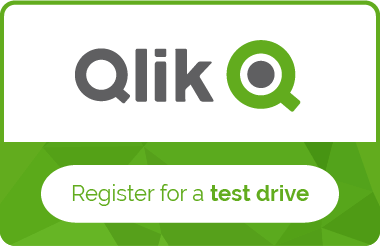5 Hallmarks Of The 'Intelligent Enterprise' In 2017

A key hallmark of an intelligent enterprise is a management approach that makes smart use of technology and service approaches to challenge and improve business performance. The boundary between IT and the business as a whole is blurring: CIOs are now creating value by delivering IT capabilities that align with business priorities, while CFOs are embracing innovation and technology that delivers improved performance management and enterprise agility.
Crafting an intelligent enterprise in 2017 won't be easy. It will require leadership, time, effort, money and perhaps an entirely new philosophical approach to doing business. What key strategic priorities will drive this movement? That's the key question.
1. Improving agility and growth
As organisations must withstand heightened business risk and volatility, improving enterprise agility continues to be a top priority. Large enterprises encounter challenges with maintaining profitability because they cannot effectively access and utilise data for either long-term planning or short-term decisions. However, through more intelligent scenario planning and profitability analysis, top performers operate with the confidence needed to make decisions that will grow the business.
In 2017, CIOs of even the most conservative and traditional B2B firms - ones filled with legacy systems and entrenched staff - will need to dive headfirst into the age of the customer and make operational changes that drive speed. CIOs will embrace Agile methodologies for faster delivery of the vast majority of their new projects.
2. Striving for better financial performance
At the end of the day, one of the most important goals for most enterprises is to make money. That means CEOs and CFOs strive to set budgetary goals and continually hit them, year after year.
There's no doubt that having budgeting and forecasting software has helped in this regard, but the intelligent enterprise still has more work to do on this front. The hope is that finance teams can lend a hand, working with the C-suite to develop agile business models and corporate performance management (CPM) technologies that support continued, strong financial performance. Removing the many manual, error-prone complex tasks within strategic planning, close and financial reporting processes will be critical.
Research from Hackett Group revealed that there's a 26 per cent gap between the perceived importance of articulating value and the actual ability of the finance team to do so. A key goal for 2017 is to close that gap.
3. Looking to empower the customer
Customer empowerment will demand a great deal of focus this year and the years that follow. Organisations must be prepared to prioritise, build up and support such initiatives with digital and analytics solutions if they intend to remain competitive.
Consumers want to have the power to control their brand experience though numerous high-tech channels. Therefore, one of the major trends in business intelligence in 2017 will be the quest for customer empowerment. The intelligent enterprise will look for ways to hand the customer the reins and let them lead.

A key goal in 2017 will be to empower the customer.
4. Supporting continuous innovation across the enterprise
Great business leaders are those who never feel fully satisfied. No matter how successful they become, they're always looking for ways to keep innovating and continue reaching new heights. Therefore, the intelligent enterprise should look to adopt new systems this year that support continuous innovation. The following trends will encourage CIO's and CFO's to drive continuous innovation.
- Fewer staff and the need to stay productive with tighter budgets will give rise to cloud and agile technologies
- Information requests demand more frequent and forward looking analysis, forecasting and performance adjustments
- CEOs expect CIOs to be leaders of innovation in analytics, business efficiency and the digital environment
5. Using advanced analytics to make better decisions
Varied data sources, the abundance of data and the expanding links between enterprises, customers and other stakeholders create new opportunities to generate business value from data and analytics. The intelligent enterprise is already looking ahead to this reality and is planning to capitalise on it. That's why solutions like Qlik business intelligence software, which helps companies answer deeper questions using more information, are so invaluable. In an interconnected world, it will be crucial to have BI solutions that are fast-acting and highly collaborative, while better integrating financial, sales and operational data for better performance management and foresight.
To delve deeper into each of these areas, download our free ebook "5 Tips For The 2017 Intelligent Enterprise".
Related Articles
No results found
Please refine your search criteria and search again



